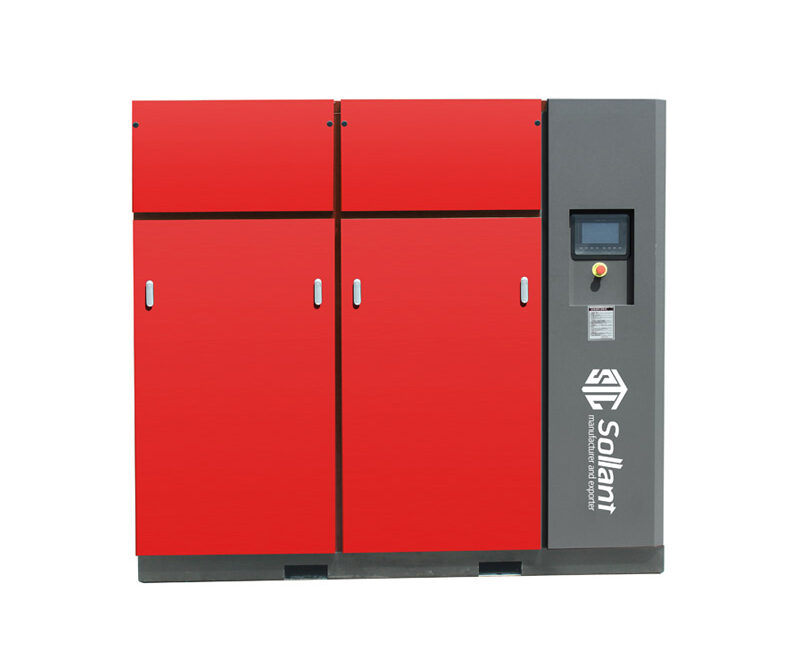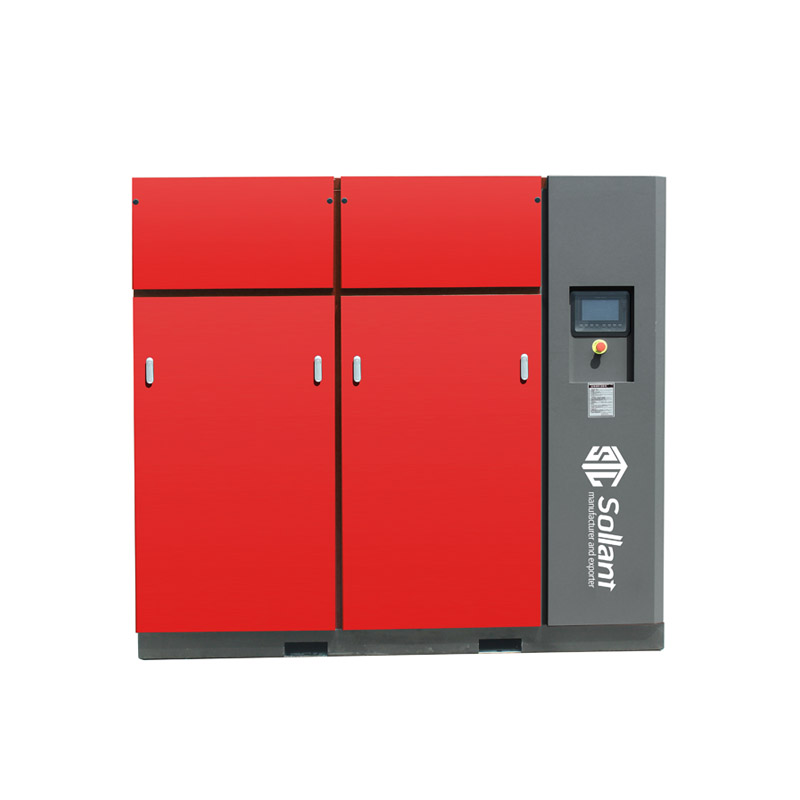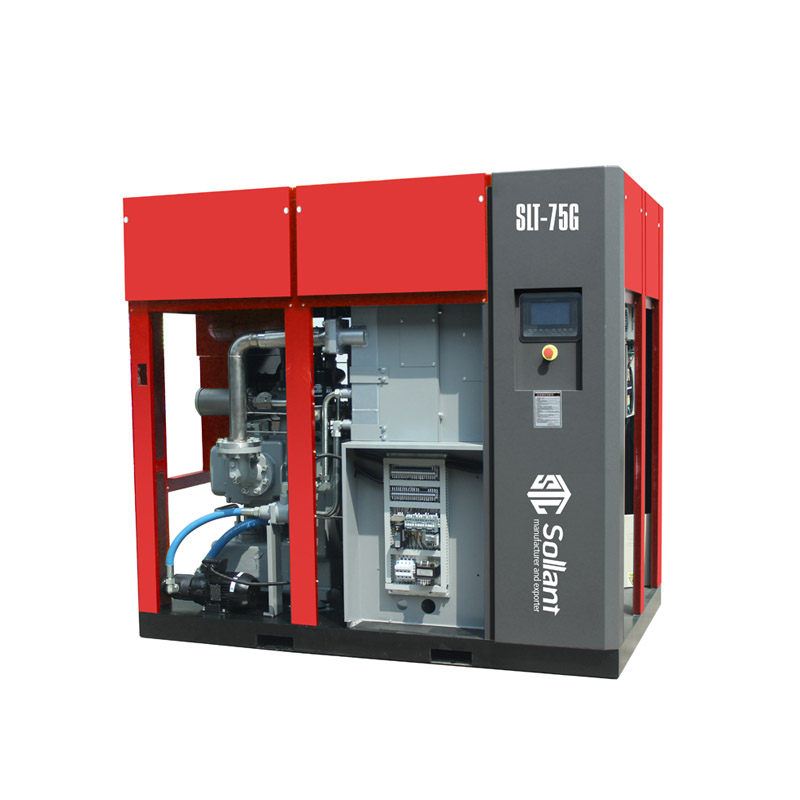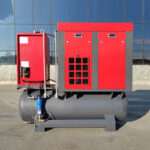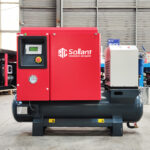Oil-free screw air compressors often encounter overheating issues during operation. Understanding the main reasons for these problems can help in maintaining optimal performance. Here, we summarize the key causes of overheating in oil-free screw air compressors.
1. High Return Air Temperature
One primary cause of overheating is a high return air temperature. This temperature is directly related to the evaporation temperature. To prevent liquid return, the return air pipeline usually requires a superheat of around 20°C. However, if the return air pipeline is not well-insulated, the superheat can significantly exceed this value.
When the return air temperature is higher, it raises both the cylinder suction temperature and the exhaust temperature. Typically, for every 1°C increase in return air temperature, the exhaust temperature can rise by 1 to 1.3°C.
2. Electrical Heating
Another factor contributing to overheating is electrical heating within the compressor. In return air cooling screw air compressors, the refrigerant vapor heats up when passing through the motor cavity. This process increases the cylinder suction temperature.
The heat generated by the motor is influenced by its power consumption, which is closely related to factors such as displacement, volumetric power, working conditions, and friction resistance. For return air cooling type semi-hermetic screw air compressors, the refrigerant temperature rise in the motor cavity can range from 15 to 45°C.
On the other hand, air cooling (air cooling) type screw air compressors do not have this issue as the cooling does not pass through the winding, thereby avoiding motor heating.
3. High Compression Ratio
The compression ratio significantly impacts the exhaust temperature. A higher compression ratio leads to a higher exhaust temperature. Therefore, reducing the compression ratio can effectively lower the exhaust temperature.
To achieve this, you can increase the suction pressure and reduce the exhaust pressure. The suction pressure is influenced by the evaporation pressure and the resistance in the suction line. By increasing the evaporation temperature, you can effectively raise the suction pressure. This adjustment helps to reduce the compression ratio and subsequently lower the exhaust temperature.
Conclusion
Overheating in oil-free screw air compressors can result from various factors, including high return air temperature, electrical heating, and high compression ratios. Addressing these issues requires careful monitoring and adjustments to ensure the compressor operates within optimal temperature ranges.
Solutions to Prevent Overheating
- Improve Insulation: Ensure that the return air pipeline is well-insulated to maintain the desired superheat and prevent excessive return air temperature.
- Regular Maintenance: Regularly check and maintain the motor to ensure it operates efficiently without generating excessive heat. For air cooling compressors, ensure the cooling system is functioning correctly.
- Adjust Compression Ratio: Monitor and adjust the compression ratio by increasing suction pressure and reducing exhaust pressure. This can be done by increasing the evaporation temperature and minimizing suction line resistance.
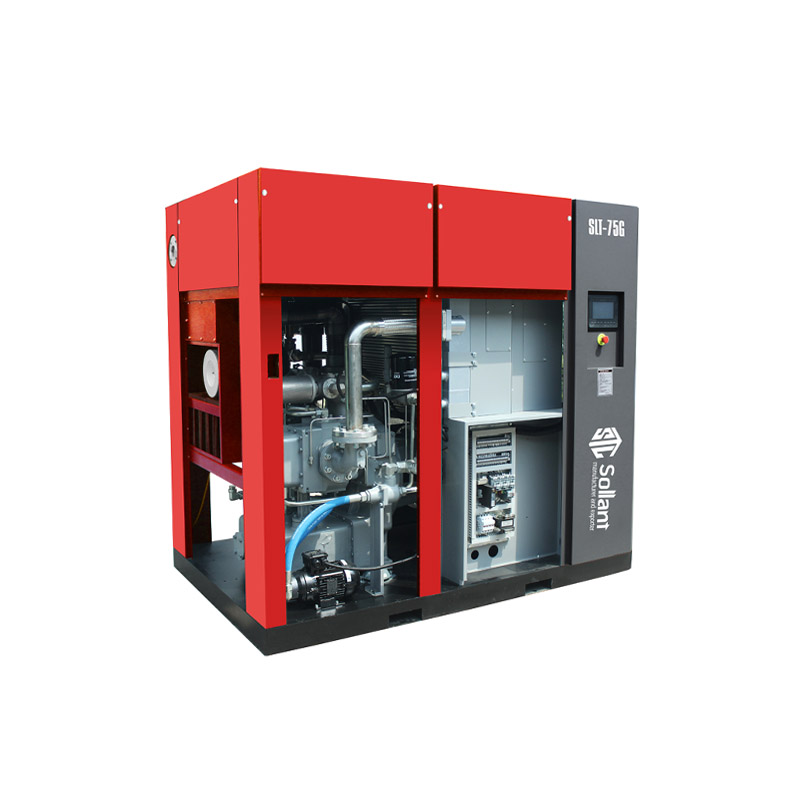
By implementing these solutions, you can effectively manage and prevent overheating issues in oil-free screw air compressors, ensuring reliable and efficient operation.
For detailed guidance and professional assistance, refer to the compressor’s manual or consult with a qualified technician. Proper maintenance and timely interventions are key to extending the lifespan of your air compressor and avoiding operational disruptions.
By understanding and addressing the causes of overheating, you can optimize the performance of your oil-free screw air compressor, ensuring it runs smoothly and efficiently in all industrial applications.
Click to view more information:
What is the reasonable installation height of the air compressor?
Top 5 Critical Reasons Why Oil-Free Air Compressors Cannot Start
Sollant air compressor maintenance shares how to clean the air compressor filter element

